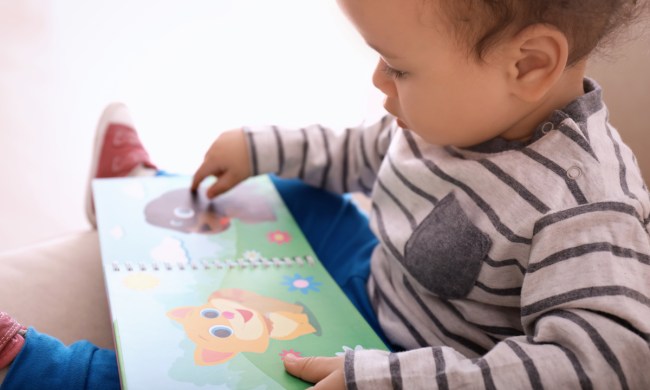
The first years of a child’s life are filled with an explosion of new words their ears are hearing for the first time. Even though they may not know what these words mean, a child will instinctively repeat these words — most times incorrectly. However, even if it is cute to hear a child say words in a funny or incorrect way, it is important to take active modification steps for the sake of your child’s verbal growth.
When children mispronounce words, for whatever reason, we should help them advance language skills correctly. The end goal is for their oral expression to be clear, accurate, and easy to comprehend. It can be enticing to allow a child to mispronounce words in the short term, but having this mindset could eventually lead to possible speech impediments.

Teaching correct pronunciation
The most important way to correct a child who mispronounces words is to be involved as a parent. Relying on school to teach your child proper language techniques is not sufficient because the school may not have the time or resources to handle your child’s language development. Keep in mind that just because your child mispronounces words, it doesn’t mean the school is not teaching English properly or that your child is doing something wrong. When your child is struggling, it is important as a parent that you work toward a solution quickly.
Here are a few tips on how to correct a child who is mispronouncing words:
Step 1: Have daily conversations.
It is not uncommon for busy parents to neglect to have daily conversations with their children, and this can be detrimental. As a parent, it is important that you establish a healthy environment where the child feels comfortable talking and expressing themselves. This healthy environment will also allow you to correct your child in an honest and constructive way.
One of the best ways to start this process is by encouraging your child to read books aloud and sing some of their favorite songs. This helps your child feel more comfortable and secure when they do make mistakes.

Step 2: Dedicate time to fixing mispronounced words.
Whether children mispronounce words by accident or on purpose, it is important that you don’t ignore them. Instead, get down to their eye level and correct their mistakes in a clear and concise way. Make sure your child understands they are not being punished and you are simply there to help them.
Step 3: Avoid making the mispronounced word a habit.
While your child is young and in the process of learning how to speak, there are going to be many words that are simply too complicated for them to pronounce. Instead of allowing the mispronunciation, try to provide your child with synonyms that are easier to say. As your child continues to develop his or her lingual coordination, you can then begin to encourage your child to pronounce more complicated words the correct way.
Step 4: Do not exclude articles and prepositions.
This is known to create misperception and affect the child’s long-term grammar development.
Step 5: Speak face-to-face either in person or virtually.
Certain facial expressions are used to help deliver both pronunciation and the meaning of words. As a result, children learn pronunciations better when they can see you speak the words. So even if you are on the other side of the globe, take advantage of video-chatting technologies that allow your child to see you pronouncing the words.
Step 6: Reach out to professionals for advice.
It is necessary that you reach out to speech professionals if your child’s speech is not improving. In most cases, the speech expert will offer your child exercises that can be practiced at home. If the mispronunciation is caused by a more serious physical impairment, however, there are some special devices that can be used. The average speech therapist typically charges $100/hour, which is not always covered by insurance.

There are many great ways to positively correct a child who is struggling with pronouncing words. In addition, the combination of knowledgeable parents and a solid school system is typically enough to handle most speech impediments. However, it is important to keep track of your child’s speech progress so you know if a professional needs to be consulted.
If you need more tips and ideas to help your kid speak correctly, check out some of our speech therapy games for children.


